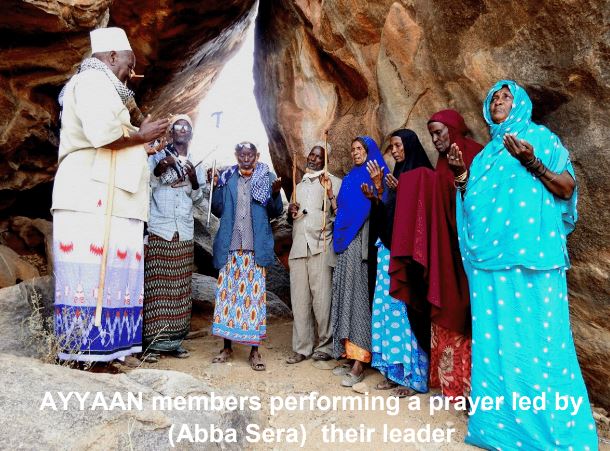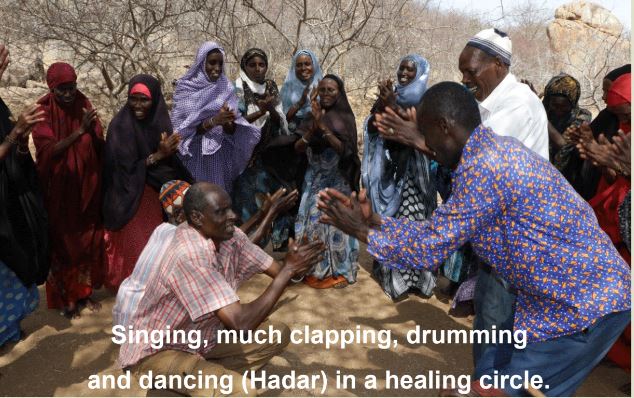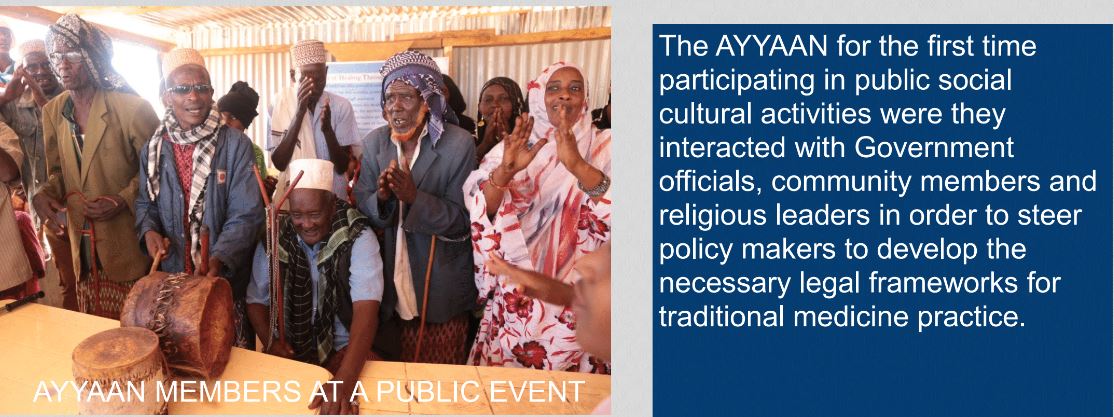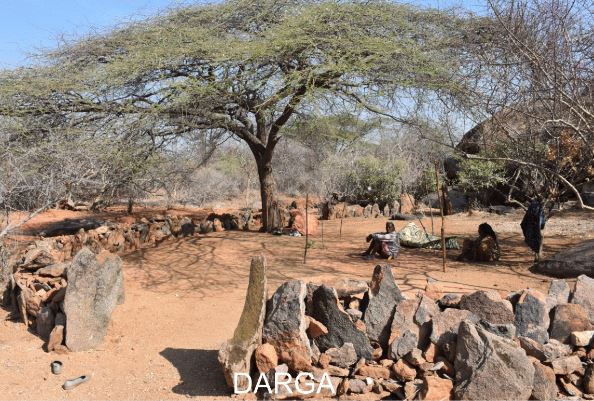In Biliqo, Isiolo County in Northern Kenya, sheep was slaughtered one morning to start a ceremony at the Darga or ceremonial site where the main healer called ’Abaye’’ performed a sign of blessings known as ‘’ebb.’’ He was joined by other spiritual healers, from different regions such as in Biliqo, Bulesa, Merti, Kinna and Garbatulla in the Northern Kenya region.
They were gathered for two days to know each other and through testimonies, exchanged different and individual methods of healing processes, success stories, and the challenges they face. The Milima Tatu Darga in Biliqo was the main ceremony site where the spiritual healers converged and performed their ceremonies for special occasions and their healing activities at the culmination of the ceremony. Patients from different groups in the communities were invited to witness healing knowledge that was transmitted to the next generation of healers for future continuity of the spiritual healing systems.

Their healing processes involved songs and dances to invoke the spirits they call ‘’janni.’ All the spiritual healers made tools like leather drum (weba), ceremonial stick (baajole) and chains/beads (shubo) which they used in their healing sessions.
The event was organized by the Bada Self-help Group that had previously launched inception and implementation meetings to sensitize the community and get them involved in the project. Earlier on, the whereabouts of the healers were known, and their age, gender and specialization documented by the project holders for efficient implementation.
The conduct of the two day ceremony and the efficacy of the healing process were fully documented on electronic and print media which were produced as photos, magazines and video documentaries that were circulated via social media (e.g., Facebook, WhatsApp, website, Instagram, and YouTube).

The meeting with the officials of government medical institutions and policy makers was venue for the spiritual healers to be recognized where the former came to understand the reality of spiritual healers and their role in communities’ traditional spiritual healing system which is a valid alternative to conventional or modern healing system.
At the same ceremony, thirty young apprentices (Wokiil) from various regions were recipients of knowledge transfer from the senior spiritual healers (abayye) who trained them on ethno-psycho-healing and professional ethics and how to monitor and assess the efficacy of their healing process.

The topographical and physical challenges presented by the vast region and inaccessibility of some communities were difficulties that the project implementation encountered. However, organizers deem it important to sustain such project with the community’s ownership and commitment. The project has to reach more target populations in some areas that cannot be easily accessed, to help people deal with, and overcome their health problems. Significantly, most community members still prefer the traditional system of healing as this has proven to be effective and affordable for them.

Through the gathering and exchange of the traditional spiritual healers, traditional knowledge is protected, upheld, and revitalized. Through documentation and archiving, it is preserved for future generations and popularized, and appreciation for traditional healing is encouraged. The learning and transmission of the healing knowledge by spiritual healers to the youth is an assurance that indigenous culture that binds the community will survive the test of time and change as long as custodians perpetuate this.

The project “Revitalizing Spiritual Traditional Healing and Supporting the Healers in Northern Kenya” was implemented by the Bada Self-help Group in August, 2019 with the support of the PAWANKA Fund.
